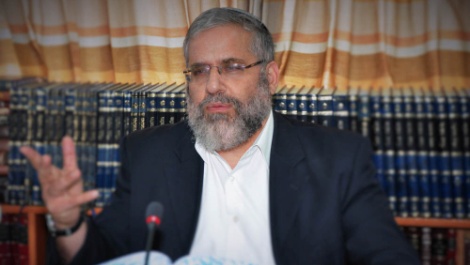Beit Midrash
- Torah Portion and Tanach
- Bamidbar
- Chukat
Ahron’s great talent was making peace between people who were at odds with one other. He was able to succeed at this because he, like Moshe, was extremely humble and did not consider himself better than anyone else. This is exemplified by his immediate, selfless acceptance of Moshe, his younger brother, as leader of the nation.
The protective clouds provided in his honor are called Ananei HaKavod; literally, clouds of honor. By teaching others to honor their fellow man, he was instrumental in creating a beautiful, holy environment that was loved and safeguarded by G-d. (Note that Rabbi Akiva’s students died for not giving kavod to one other).
But when Ahron died, this great role model of bein adam l’chavero (good relations between people) was gone, & the people’s respect for each other went into decline. This led to arguments, strife & machloket - and eventually it led us into war. As such, our Parsha sadly but perfectly fits into the pattern of dissension that runs through the complainers of parshat Bha’alotcha, the slanderous spies of Shlach-Lecha and the rebellion of Korach.
The lesson here is all-too obvious. Post-election of a new Prime Minister, there has been an extremely dangerous outbreak of Jew vs. Jew disrespect. The fact that we argue with each other is not necessarily or inherently destructive. After all, the Gemara is all about argument & the staking out of different positions, in order to arrive at the ultimate Truth. That’s fine; the real question we must ask ourselves is, how do we argue with each other?
Do we honor & give credence to others’ position by politely letting them say their piece, or do we dismiss it out of hand, screaming epithets & curses? Do we accept that there may be more than one way of looking at things – that we might even be wrong! – or, do we arrogantly insist that ours is the only opinion worth considering?
The Sages tell us that the reason Jewish law generally follows Bet Hillel & not Bet Shammai is that Bet Hillel always patiently considered & articulated, the views of Bet Shammai before going on to express its own. It was truly a Torat Ahron, an approach worthy of Ahron, and one we should diligently pursue today, before it’s too late.

“Can I Quote You?”
Parashat Chukat
Rabbi Yossef Carmel | 5764

The Message of the Inexplicable Red Heifer
Rabbi Avichai Katzin | 6 Tammuz 5784

Parashat Hashavua: “… Harvest Your Grain…” – The Torah of Life in Eretz Yisrael
Rabbi Yossef Carmel | Tammuz 5785




















